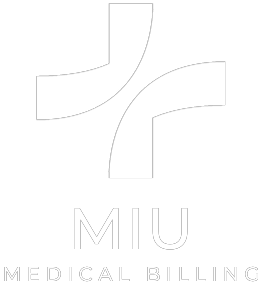Hospital billing is an integral part of a healthcare provision chain that aims to help medical facilities receive their payment for services rendered. Indeed, patients should seize some knowledge of billing because it becomes a very daunting process of managing health costs when not understood and controlled. However, due to the complexity occasioned by hospital billing, it is often characterized by high input levels. Here, we provide a step-by-step hospital billing guide on Understanding and Interpreting a Hospital Bill and the details related to hospital bill formats, types, and uses of billing codes, admitted and observation billing, billing processes, and timeline.
1. What is a Hospital Bill Format?

A hospital bill format represents a structured document that states the medical services served to a patient and the bill the patient has to pay. This one records financial transactions to and from the patient and is a communication medium between the caregiver, the patient, and the insurance company.
Components of a Hospital Bill
A standard hospital bill includes the following elements:
• Patient Details: Patient data must be provided, including name, date of birth, and insurance.
• Charges for Services: Line-by-line breakdown of costs related to room charges, diagnostics, treatments, and drugs.
• Insurance Payments: Expenses incurred after insurance payment, such as Co-payments and Deductibles.
• Total Balance Due: The cost of the treatment that the patient has to meet out of pocket after receiving a rebate from an insurance company.
Sample Layout
- At the top of the patient.
- List services provided and the cost associated with each.
- An overview of insurance transactions and balance contributions by the patient.
This structured format makes the mode transparent and makes payment more manageable for the patients and healthcare providers.
2. Understanding Hospital Billing Codes
What Are Hospital Billing Codes?
Hospital billing codes are alphanumeric codes explaining diagnoses, medical procedures, and services. Common types include:
• CPT (Current Procedural Terminology): Healthcare appraisal defines medical procedures and services.
• ICD-10 (International Classification of Diseases): Organizes diseases.
• HCPCS (Healthcare Common Procedure Coding System): This includes medical equipment, products or supplies, and other non-doctor services.
They make coding uniform across the medical field and help insurance companies work with claims.
Why Are Billing Codes Important?
1. Accuracy in Billing: This would reduce the chances of making mistakes in billing services.
2. Insurance Reimbursement: Contributes to the insurance buyer and identification of coverage and payment.
3. Legal Compliance: Complies with health care laws and policies.
Because of these codes, it would be difficult for the healthcare sector to work effectively and efficiently in their billing processes.
3. How Does Hospital Billing Work?
Hospital billing is a process that takes several places before all stakeholders converge for a common understanding of the entire process, entailing patients, insurance service providers, and the hospital itself.
Step-by-Step Process
1. Patient Registration: Obtain patient information and confirm insurance.
2. Services Provided: Record meetings with patients, operations, tests, and therapies.
3. Medical Coding: Ensure every service has the right billing code.
4. Claim Submission: Forward the bill to the insurance provider so that they can go through it and make the necessary payment.
5. Payment Collection: Afterward, insurance reimburses its portion, and then the balance will be charged to the patient.
Roles Involved
• Medical Coders: Services and treatments being provided must be correctly coded.
• Billing Staff: File claims on behalf of the insurance providers.
• Insurance Providers: Check legends and decide about coverage.
All those positions are significant in ensuring the hospital billing is well done and orderly.
4. How Long Does It Take to Get a Hospital Bill?
The time it takes to receive a hospital bill depends on various factors:
• Immediate Billing: Outpatient services or straightforward operations are usually billed within a week.
• Delayed Billing: People often stay at hospitals for weeks or months if they receive inpatient care or need significant treatments. The insurance verification and claims process may take a lot of time, measured in weeks or months, if the patient requires inpatient care and when more complex treatment is needed.
Therefore, patients will be afforded an expansive and elaborate invoice for the services rendered, including insurance charges. Hospitals can also deliver an interim bill if the treatment is long-term or the stay is extensive.
If you are still contemplating asking yourself, ‘How soon can I get a hospital bill?’, contact the billing department, and they will clear it up.
Typical Timeline
A typical hospital bill may include the following sections:
• Room Charges: The patient incurs charges within the hospital for the stay.
• Procedures: Surgical procedures, diagnostic tests, and therapies are tabulated by specific listings.
• Medications: Drugs and medical supplies are costs incurred through prescriptions by different doctors.
• Insurance Payments: Amounts received from patients’ health insurance plans.
• Balance Due: The final figure that remains payable by the patient, whether before or after insurance deductions.
6. Hospital Billing vs. Professional Billing

What’s the Difference?
• Hospital Billing: This includes facility expenses, room charges, tests, and equipment.
• Professional Billing: Concerns with fees on health care practitioners, extending to physician consultation and other specialized services.
When Each Applies
If, for instance, you happen to have a surgical operation done, then hospital billing will include charges like the cost of the theatre, apparatus, and the like. In contrast, professional billing will cover the surgeon’s or the anesthetist’s charges. This understanding assists patients to know where the charges they receive originated from.
Conclusion
Understanding the fundamentals of hospital billing can make this process somewhat less confusing. Not every piece of information essential to know, ranging from the formats of bills that one comes across in a hospital or the various billing codes to the duration one takes to receive the bill, can go a long way in giving one confidence when in the system.
Last Strategies for Handling New Hospital Costs
• Check for Errors: There can be mistakes in code, billing or charges, which create an overpayment.
• Understand Insurance Coverage: To worry over those costs, define what your policy does and does not include.
• Request Assistance: Contact the billing departments with/without the help of or patient advocacy services as and when required.
Call to Action
Have you ever experienced some difficulties with hospital billing? Please use the comments section to post your stories and questions. More help is available: speak with a patient advocate or with the hospital’s billing office if you have one that addresses questions like this.
So, taking charge of your medical costs and having more efficient billing for you is possible.




